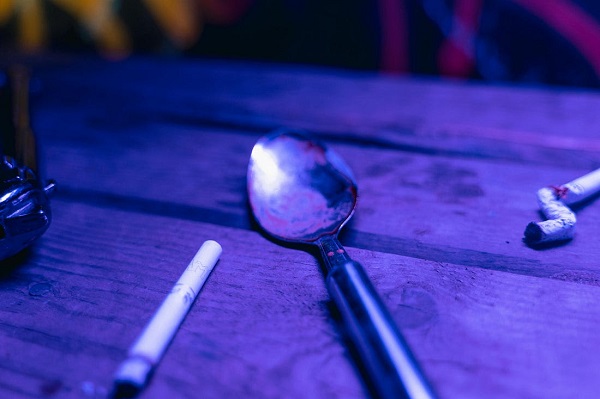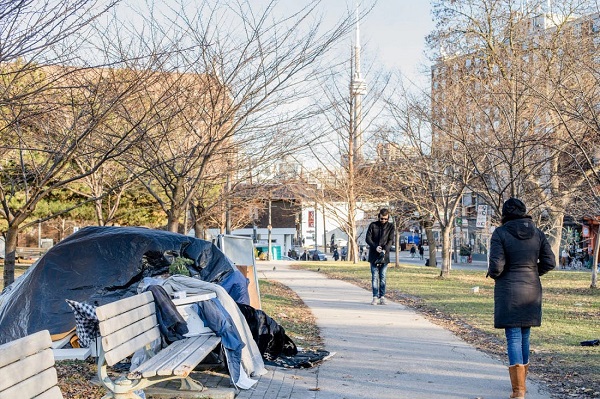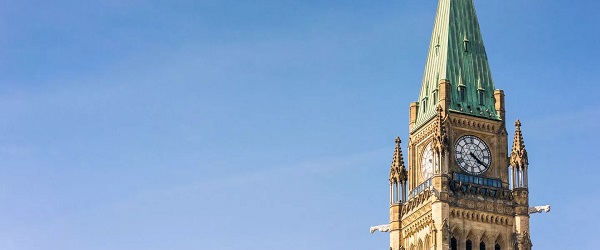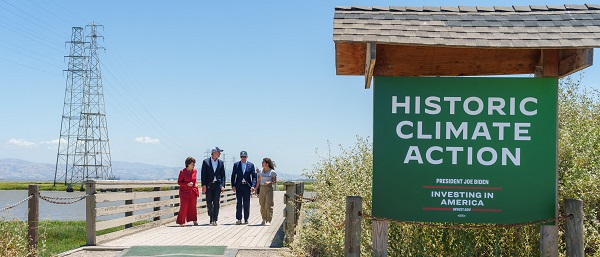Addictions
News For Those Who Think Drug Criminalization Is Racist. Minorities Disagree

A Canadian poll finds that racial minorities don’t believe drug enforcement is bigoted.
By Adam Zivo
[This article was originally published in City Journal, a public policy magazine and website published by the Manhattan Institute for Policy Research]
Is drug prohibition racist? Many left-wing institutions seem to think so. But their argument is historically illiterate—and it contradicts recent polling data, too, which show that minorities overwhelmingly reject that view.
Policies and laws are tools to establish order. Like any tool, they can be abused. The first drug laws in North America, dating back to the late nineteenth and early twentieth centuries, arguably fixated on opium as a legal pretext to harass Asian immigrants, for example. But no reasonable person would argue that laws against home invasion, murder, or theft are “racist” because they have been misapplied in past cases. Absent supporting evidence, leaping from “this tool is sometimes used in racist ways” to “this tool is essentially racist” is kindergarten-level reasoning.
Yet this is precisely what institutions and activist groups throughout the Western world have done. The Drug Policy Alliance, a U.S.-based organization, suggests that drug prohibition is rooted in “racism and fear.” Harm Reduction International, a British NGO, argues for legalization on the grounds that drug prohibition entrenches “racialized hierarchies, which were established under colonial control and continue to dominate today.” In Canada, where I live, the top public health official in British Columbia, our most drug-permissive province, released a pro-legalization report last summer claiming that prohibition is “based on a history of racism, white supremacy, paternalism, colonialism, classism and human rights violations.”
These claims ignore how drug prohibition has been and remains popular in many non-European societies. Sharia law has banned the use of mind-altering substances since the seventh century. When Indigenous leaders negotiated treaties with Canadian colonists in the late 1800s, they asked for “the exclusion of fire water (whiskey)” from their communities. That same century, China’s Qing Empire banned opium amid a national addiction crisis. “Opium is a poison, undermining our good customs and morality,” the Daoguang emperor wrote in an 1810 edict.
Today, Asian and Muslim jurisdictions impose much stiffer penalties on drug offenders than do Western nations. In countries like China, Saudi Arabia, Iran, Singapore, and Thailand, addicts and traffickers are given lengthy prison sentences or executed. Meantime, in Canada and the United States, de facto decriminalization has left urban cores littered with syringes and shrouded in clouds of meth.
The anti-drug backlash building in North America appears to be spearheaded by racial minorities. When Chesa Boudin, San Francisco’s former district attorney, was recalled in 2022, support for his ouster was highest among Asian voters. Last fall, 73 percent of Latinos backed California’s Proposition 36, which heightened penalties for drug crimes, while only 58 percent of white respondents did.
In Canada, the first signs of a parallel trend emerged during Vancouver’s 2022 municipal election, where an apparent surge in Chinese Canadian support helped install a slate of pro-police candidates. Then, in British Columbia’s provincial election last autumn, nonwhite voters strongly preferred the BC Conservatives, who campaigned on stricter drug laws. And in last month’s federal election, within both Vancouver and Toronto’s metropolitan areas, tough-on-crime conservatives received considerable support from South Asian communities.
These are all strong indicators that racial minorities do not, in fact, universally favor drug legalization. But their small population share means there is relatively little polling data to measure their preferences. Since only 7.6 percent of Americans are Asian, for example, a poll of 1,000 randomly selected people will yield an average of only 76 Asian respondents—too small a sample from which to draw meaningful conclusions. You can overcome this barrier by commissioning very large polls, but that’s expensive.
Nonetheless, last autumn, the Centre for Responsible Drug Policy (a nonprofit I founded and operate) did just that. In partnership with the Macdonald-Laurier Institute, we contracted Mainstreet Research to ask over 12,000 British Columbians: “Do you agree or disagree that criminalizing drugs is racist?”
The results undermine progressives’ assumptions. Only 26 percent of nonwhite respondents agreed (either strongly or weakly) that drug criminalization is racist, while over twice as many (56 percent) disagreed. The share of nonwhite respondents who strongly disagreed was three times larger than the share that strongly agreed (43.2 percent versus 14.3 percent). These results are fairly conclusive for this jurisdiction, given the poll’s sample size of 2,233 nonwhite respondents and a margin of error of 2 percent.
Notably, Indigenous respondents seemed to be the most anti-drug ethnic group: only 20 percent agreed (weakly or strongly) with the “criminalization is racist” narrative, while 61 percent disagreed. Once again, those who disagreed were much more vehement than those who agreed. With a sample size of 399 respondents, the margin of error here (5 percent) is too small to confound these dramatic results.
We saw similar outcomes for other minority groups, such as South Asians, Southeast Asians, Latinos, and blacks. While Middle Eastern respondents also seemed to follow this trend, the poll included too few of them to draw definitive conclusions. Only East Asians were divided on the issue, though a clear majority still disagreed that criminalization is racist.
As this poll was limited to British Columbian respondents, our findings cannot necessarily be assumed to hold throughout Canada and the United States. But since the province is arguably the most drug-permissive jurisdiction within the two countries, these results could represent the ceiling of pro-drug, anti-criminalization attitudes among minority communities.
Legalization proponents and their progressive allies take pride in being “anti-racist.” Our polling, however, suggests that they are not listening to the communities they profess to care about.
Our content is always free – but if you want to help us commission more high-quality journalism,
please consider getting a voluntary paid subscription.
Addictions
BC premier admits decriminalizing drugs was ‘not the right policy’

From LifeSiteNews
Premier David Eby acknowledged that British Columbia’s liberal policy on hard drugs ‘became was a permissive structure that … resulted in really unhappy consequences.’
The Premier of Canada’s most drug-permissive province admitted that allowing the decriminalization of hard drugs in British Columbia via a federal pilot program was a mistake.
Speaking at a luncheon organized by the Urban Development Institute last week in Vancouver, British Columbia, Premier David Eby said, “I was wrong … it was not the right policy.”
Eby said that allowing hard drug users not to be fined for possession was “not the right policy.
“What it became was a permissive structure that … resulted in really unhappy consequences,” he noted, as captured by Western Standard’s Jarryd Jäger.
LifeSiteNews reported that the British Columbia government decided to stop a so-called “safe supply” free drug program in light of a report revealing many of the hard drugs distributed via pharmacies were resold on the black market.
Last year, the Liberal government was forced to end a three-year drug decriminalizing experiment, the brainchild of former Prime Minister Justin Trudeau’s government, in British Columbia that allowed people to have small amounts of cocaine and other hard drugs. However, public complaints about social disorder went through the roof during the experiment.
This is not the first time that Eby has admitted he was wrong.
Trudeau’s loose drug initiatives were deemed such a disaster in British Columbia that Eby’s government asked Trudeau to re-criminalize narcotic use in public spaces, a request that was granted.
Records show that the Liberal government has spent approximately $820 million from 2017 to 2022 on its Canadian Drugs and Substances Strategy. However, even Canada’s own Department of Health in a 2023 report admitted that the Liberals’ drug program only had “minimal” results.
Official figures show that overdoses went up during the decriminalization trial, with 3,313 deaths over 15 months, compared with 2,843 in the same time frame before drugs were temporarily legalized.
Addictions
Canada must make public order a priority again

A Toronto park
Public disorder has cities crying out for help. The solution cannot simply be to expand our public institutions’ crisis services
[This editorial was originally published by Canadian Affairs and has been republished with permission]
This week, Canada’s largest public transit system, the Toronto Transit Commission, announced it would be stationing crisis worker teams directly on subway platforms to improve public safety.
Last week, Canada’s largest library, the Toronto Public Library, announced it would be increasing the number of branches that offer crisis and social support services. This builds on a 2023 pilot project between the library and Toronto’s Gerstein Crisis Centre to service people experiencing mental health, substance abuse and other issues.
The move “only made sense,” Amanda French, the manager of social development at Toronto Public Library, told CBC.
Does it, though?
Over the past decade, public institutions — our libraries, parks, transit systems, hospitals and city centres — have steadily increased the resources they devote to servicing the homeless, mentally ill and drug addicted. In many cases, this has come at the expense of serving the groups these spaces were intended to serve.
For some communities, it is all becoming too much.
Recently, some cities have taken the extraordinary step of calling states of emergency over the public disorder in their communities. This September, both Barrie, Ont. and Smithers, B.C. did so, citing the public disorder caused by open drug use, encampments, theft and violence.
In June, Williams Lake, B.C., did the same. It was planning to “bring in an 11 p.m. curfew and was exploring involuntary detention when the province directed an expert task force to enter the city,” The Globe and Mail reported last week.
These cries for help — which Canadian Affairs has also reported on in Toronto, Ottawa and Nanaimo — must be taken seriously. The solution cannot simply be more of the same — to further expand public institutions’ crisis services while neglecting their core purposes and clientele.
Canada must make public order a priority again.
Without public order, Canadians will increasingly cease to patronize the public institutions that make communities welcoming and vibrant. Businesses will increasingly close up shop in city centres. This will accelerate community decline, creating a vicious downward spiral.
We do not pretend to have the answers for how best to restore public order while also addressing the very real needs of individuals struggling with homelessness, mental illness and addiction.
But we can offer a few observations.
First, Canadians must be willing to critically examine our policies.
Harm-reduction policies — which correlate with the rise of public disorder — should be at the top of the list.
The aim of these policies is to reduce the harms associated with drug use, such as overdose or infection. They were intended to be introduced alongside investments in other social supports, such as recovery.
But unlike Portugal, which prioritized treatment alongside harm reduction, Canada failed to make these investments. For this and other reasons, many experts now say our harm-reduction policies are not working.
“Many of my addiction medicine colleagues have stopped prescribing ‘safe supply’ hydromorphone to their patients because of the high rates of diversion … and lack of efficacy in stabilizing the substance use disorder (sometimes worsening it),” Dr. Launette Rieb, a clinical associate professor at the University of British Columbia and addiction medicine specialist recently told Canadian Affairs.
Yet, despite such damning claims, some Canadians remain closed to the possibility that these policies may need to change. Worse, some foster a climate that penalizes dissent.
“Many doctors who initially supported ‘safe supply’ no longer provide it but do not wish to talk about it publicly for fear of reprisals,” Rieb said.
Second, Canadians must look abroad — well beyond the United States — for policy alternatives.
As The Globe and Mail reported in August, Canada and the U.S. have been far harder hit by the drug crisis than European countries.
The article points to a host of potential factors, spanning everything from doctors’ prescribing practices to drug trade flows to drug laws and enforcement.
For example, unlike Canada, most of Europe has not legalized cannabis, the article says. European countries also enforce their drug laws more rigorously.
“According to the UN, Europe arrests, prosecutes and convicts people for drug-related offences at a much higher rate than that of the Americas,” it says.
Addiction treatment rates also vary.
“According to the latest data from the UN, 28 per cent of people with drug use disorders in Europe received treatment. In contrast, only 9 per cent of those with drug use disorders in the Americas received treatment.”
And then there is harm reduction. No other country went “whole hog” on harm reduction the way Canada did, one professor told The Globe.
If we want public order, we should look to the countries that are orderly and identify what makes them different — in a good way.
There is no shame in copying good policies. There should be shame in sticking with failed ones due to ideology.
Our content is always free – but if you want to help us commission more high-quality journalism,
consider getting a voluntary paid subscription.
-

 espionage2 days ago
espionage2 days agoBreaking: P.E.I. Urges RCMP Probe of Alleged Foreign Interference, Money Laundering
-

 Business21 hours ago
Business21 hours agoCanada has an energy edge, why won’t Ottawa use it?
-

 Alberta2 days ago
Alberta2 days agoPremier Smith addresses the most important issue facing Alberta teachers: Classroom Complexity
-

 Business22 hours ago
Business22 hours agoFederal Budget 2025: A responsible media would ensure Canadians know about the dismal state of federal finance
-

 Alberta2 days ago
Alberta2 days agoAlberta taxpayers should know how much their municipal governments spend
-

 Business1 day ago
Business1 day agoCutting Red Tape Could Help Solve Canada’s Doctor Crisis
-

 Daily Caller1 day ago
Daily Caller1 day agoTrump, Putin Agree On High-Stakes Meetings To Negotiate End To Ukraine War
-

 International9 hours ago
International9 hours agoPoland’s president signs new zero income tax law for parents with two children





